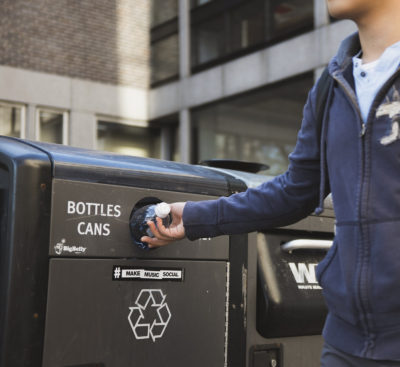
Nearly two months after Boston University’s Board of Trustees approved BU Bold, a version of the Climate Action Plan mandating that BU adopt 100 percent renewable energy by 2040, BU has taken steps to meet the recommendations outlined by the Climate Action Task Force.
Anthony Janetos, a BU professor of Earth and environment and the chair of the Task Force, said BU has been looking carefully at the proposed power purchasing agreement for renewable energy, which is the proposal for BU to invest in renewable power, but the agreement has not been concluded.
Dhruv Patel, a sophomore in the College of Arts and Sciences, said he transferred recently from the University of Massachusetts Amherst and remembers the school as being active in sustainability. He said that after taking a class on global environmental change, however, he is doubtful that BU Bold will be achieved by 2040.
“It doesn’t seem possible by 2040 but I’d say maybe later in the century it’s definitely possible. 2040 is a little too optimistic,” he said. “The technology — it’s still being researched right now.”
In light of the looming deadline, BU is currently considering purchasing renewable energy, according to Dennis Carlberg, the director of Sustainability@BU. This energy would account for 100 percent of the university’s electrical load and half of the university’s greenhouse gas emissions.
“We are pursuing a new project, currently in its planning process, that will have the greatest emissions reductions impacts as possible,” Carlberg wrote in an email.
Alexander Berbey, a freshman in the College of General Studies, said he thinks reliance solely on renewable energy could be achieved as early as 2030. Berbey cited the separate landfill, recycle and compost bins in the George Sherman Union as an example of BU’s efforts.
“Renewable energy is kind of the new thing and it needs to be the new thing,” Berbey said. “We only have one Earth. Even [in the GSU] you have all these bins with specific labels and it lets you know exactly what you need to do and it makes it really easy for people who are lazy and not really thinking.”
Berbey said he thinks BU could improve upon wasting less electricity.
“The only thing that I’ve noticed because my friend pointed it out is that the screen on Nickerson Field is always on, even at three in the morning when it doesn’t need to be,” he said.
Janetos said a group of faculty at BU is also beginning to plan an academic initiative and to create a task force on climate change and sustainability that will look at making BU’s campus a “living laboratory” to promote sustainability research.
The task force will look at curriculum offerings and attempt to make topics like climate change and sustainability more prevalent in academic curricula throughout the university.
“There will soon be planning going on for pilot studies on resilience and adaptation capacity, so I think the university is taking appropriate steps to implement the recommendations,” Janetos said. “Given that we just made the recommendations six weeks ago, it’s a little soon [to tell], but the university is certainly doing the right things.”
Carlberg wrote that BU needs to act upon commitments laid out in the CAP and keep the BU community informed about its progress in order to improve in sustainability.
“We will be reporting the University’s progress on these issues annually, along with the rest of our progress on campus sustainability as we have been since 2011,” Carlberg wrote. “Boston University is the first university to report annually to [the Association for the Advancement of Sustainability in Higher Education].”
Lucas Blasing, a freshman in CAS, said he thinks BU is ahead of the curve when it comes to improving sustainability on campus compared to other colleges.
“When I think of sustainability, what I think of is the reusable [bottle filling stations],” Blasing said. “It’s not a very littered campus. It’s very clean and well looked after, so I don’t notice a lot of poor things.”


















































































































